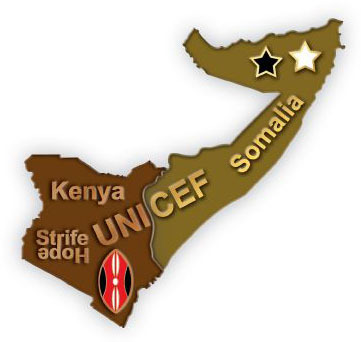Humanitarian crisis looming in huge Somali refugee camp
 Nairobi - Some 250,000 Somalis living in one of the world's largest refugee camps are on the verge of a humanitarian emergency that can only be averted by urgent action, international charity Oxfam warned Friday.
Nairobi - Some 250,000 Somalis living in one of the world's largest refugee camps are on the verge of a humanitarian emergency that can only be averted by urgent action, international charity Oxfam warned Friday.
The Dadaab refugee complex in north-eastern Kenya has become dangerously over-crowded as Somalis continue to flee a bloody insurgency that has claimed the lives of over 15,000 civilians since early 2007.
Oxfam warned that a public health crisis is brewing, with basic services stretched to breaking point by the mass of refugees.
"Conditions in Dadaab are dire and need immediate attention," said Philippa Crosland-Taylor, head of Oxfam GB in Kenya. "Half of the people in the camp do not have access to enough water."
Andreas Needham, spokesman for the UN Refugee Agency UNHCR at Dadaab, acknowledged that there were water issues in the camp brought on by overcrowding.
"The problem remains that we have 250,000 people in a camp designed for 90,000," he told the German Press Agency dpa.
The overcrowding only looks likely to only worsen, however.
The appointment of a moderate Islamist president in Somalia, Sheikh Sharif Sheikh Ahmed, has raised international hopes that peace can be brought to the Horn of Africa nation.
However, main insurgent group al-Shabaab has said it will continue to fight and the refugee flight has gathered pace.
"By 23 March we had over 20,000 new residents," said Needham. "This is despite the optimism about the new government."
Oxfam said it expects around 100,000 Somalis to make the trek to Dadaab in 2009, compared to 62,000 last year.
The charity called on Kenya to allocate more land for another camp, thus extending the capacity of the complex.
However, the Kenyan government has shown little appetite to release land and few expect this to change in the near future.
Part of the problem comes from the need to balance the desires of the refugees with those of the local community, many of whom are impoverished.
Tensions are often high between the locals and refugees, and late last year UN cars were stoned by locals protesting about the camp.
Oxfam also called on Kenya to re-open its Somali border, which was closed in an unsuccessful attempt to slow down the exodus.
According to the charity, the closure only prevents the UN Refugee Agency UNHCR from giving incoming refugees health checks on the border, increasing the chance of diseases being brought into the camp, where they can easily spread.
At least 20 cases of cholera have been reported in the camp in recent weeks. (dpa)